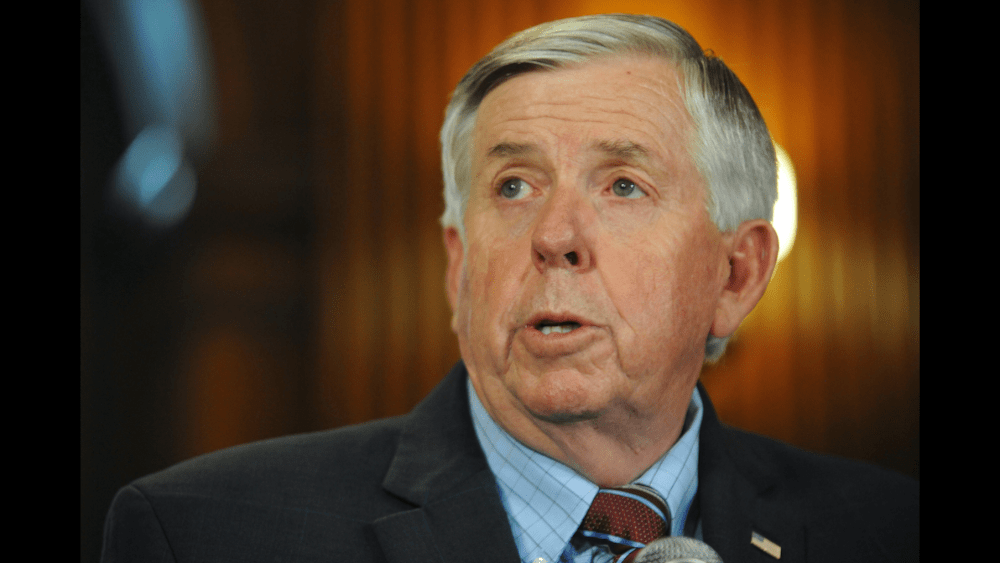
Since taking office in 2018, combating violent crime has been a priority for Governor Mike Parson and his administration. Over the past year alone, he and his administration have taken several steps to address the issue, invest state resources, and protect the safety of Missourians.
A press release says Missouri has seen rapid increases in violent crime rates this year, primarily in the state’s urban areas. In St. Louis, 2020 homicides have already surpassed 2019 homicides, putting the state on track to have its deadliest year on record. As of October 12, there have been 210 homicides in St. Louis compared to 194 last year. In Kansas City, there have been 149 homicides in 2020 as of October 14 compared to 151 in all of 2019.
To better understand the issues in Missouri’s high-crime areas, Governor Parson has traveled across the state to meet with community members as well as leaders and experts from numerous organizations on the frontlines, including the Urban League of St. Louis, Ecumenical Leadership Council, Missouri Clergy Coalition, and Better Family Life, among many others.
Governor Parson has also worked closely with the mayors of Missouri’s four largest metro areas – Mayor Quinton Lucas of Kansas City, Mayor Lyda Krewson of St. Louis, Mayor Ken McClure of Springfield, and Mayor Brian Treece of Columbia – to discuss the issues and develop potential solutions.
Most recently, Governor Parson signed HB 66 and HB 46 into law, which were passed by the General Assembly during a special session on violent crime called by the Governor in July.
HB 66 creates a Pretrial Witness Protection Fund in which law enforcement agencies can provide resources for the security of victims, witnesses, and their immediate families. HB 46 removes the residency requirements for public safety employees in the City of St. Louis. The St. Louis Metropolitan Police Department is currently short by more than 140 officers, and this legislation can help fill that gap.
Governor Parson has held several ceremonial bill signings of HB 66 and HB 46 with law enforcement across the state. By supporting law enforcement officers, these bills will assist Missouri’s overall efforts to reduce violent crime.
In June, Governor Parson challenged the the Peace Officer Standards and Training (POST) Commission to take a leading role in advancing the training Missouri provides its officers and help them improve relations with the public. The POST Commission followed through on Governor Parson’s challenge, recently voting to require annual training in de-escalation techniques and recognizing implicit bias for all Missouri law enforcement officers.
Beginning in 2022, Missouri officers will now take a one-hour course in each area as part of their required 24-hours of annual continuing education training.
The POST Commission also voted unanimously to grant preliminary approval for Lincoln University’s proposal to establish a law-enforcement basic training academy. The proposed training academy would be the nation’s first at a Historically Black College and University and could have far-reaching impacts in recruiting more minority law enforcement officers.
Governor Parson’s administration has also taken several other steps to fight violent crime and protect Missourians:
Committed state personnel to support federal task forces and other operations in St. Louis, including the ATF Strike Force, U.S. Marshals Fugitive Task Force, and the Mission SAVE Task Force; and Signed SB 600 modifying and creating several provisions relating to dangerous felonies.
Supported partnerships between local, state, and federal law enforcement to fight violent crime, including Operation Legend and Operation Triple Beam
$1 million grant to the Urban League of St. Louis to expand violent crime de-escalation;
•$1 million Victims of Crime Act (VOCA) grant to Area Resources for Community and Human Services (ARCHS) in St. Louis for its Neighborhood Healing Network;
•$1 million VOCA grant to ARCHS and Better Family Life for its Trauma Resource Network; and •Nearly $900,000 to support the Attorney General’s Safer Streets Initiative.


